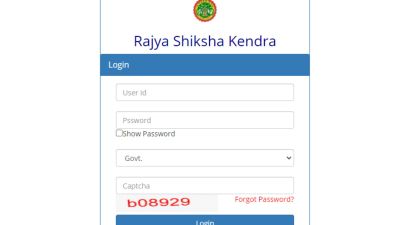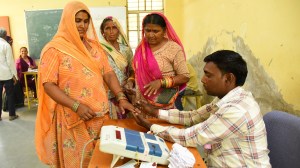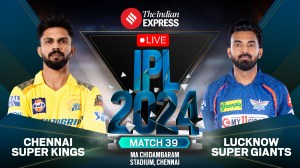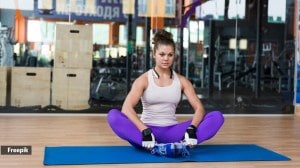- India
- International
In UP ‘Brush Nagari’, note ban lifts BSP, SP
Sherkot has around 600 small-scale and cottage industry units that produce an estimated 70 per cent of the painting and drawing brushes in India.
 Outside a bank in Sherkot, Bijnor, UP. Oinam Anand
Outside a bank in Sherkot, Bijnor, UP. Oinam Anand
IT’S BEEN over two months since demonetisation happened, but the queues before banks and ATMs in ‘Brush Nagari’ — as this town in the Dhampur Assembly constituency of western Uttar Pradesh’s Bijnor district is called — are still long and winding. Sherkot has around 600 small-scale and cottage industry units that produce an estimated 70 per cent of the painting and drawing brushes in India. They employ between 25,000 and 30,000 people from in and around the Nagar Palika town, which had a population of 62,226, according to the 2011 Census, of which over 74 per cent were Muslims and another 9 per cent Dalits.
“Notebandi has hit us badly. Sixty per cent of our units have shut, as there’s no cash to pay workers,” says Mohammad Ajmal, owner of Oskar Brush Products. “The small home-based units, each engaging 10-25 labourers, have stopped working. Even the bigger ones — the 25 or so having 100-150 workers each — are running for eight hours, as against 12 before November 8 (when the old Rs 500 and Rs 1,000 denomination notes were banned),” says Satish Kumar, a local brushware trader.
Two things strike any first-time visitor to Sherkot. The first is the streetlight poles fitted with LED bulbs dotting not just the main, but even interior roads. This is being credited to the town’s young municipal board chairman Qamrul Islam, who is from the ruling SP. The second is the long bank and ATM lines.
“Out of the four ATMs here, only the one belonging to HDFC functions occasionally. The second (of Punjab National Bank) is non-functional, the third (Bank of Baroda) was shut from November 8 till January 11, and the fourth (State Bank of India) has no money most of the time. Even the banks mostly give only Rs 1,000 at a time,” says Keshav Singh, from Balkishanpur, a village nearby.
For the current Assembly polls, the BSP’s candidate from Dhampur is Mohammad Ghazi, who has a family business of manufacturing paint and art brushes under the ‘Sajan’ and ‘Charminar’ brands. Other leading brush makers from Sherkot include names such as ‘Wilson’, ‘Sunrise’, ‘Jainco’, ‘A One’, ‘Panama’ and ‘Master’. These firms basically source the raw material — PVC or wooden handles, bristles and tin ferrules, which hold the hair or filaments on the handle, and epoxy glue — from outside and assemble the brushes using local labour.

“The brushes are hand-assembled, requiring special labour skills that you’ll find in this town,” says Ghazi’s father Mohammad Khursheed, who came from Gungoh near Saharanpur in 1976 to establish a brush-making unit at Sherkot. “Those days, we used only natural bristles like hair from pigs or from cattle and buffalo tails. But in the last 15 years or so, synthetic nylon filaments are mostly used.”
The BSP’s electoral strategy this time is focused around Dalit-Muslim consolidation and capitalising on discontent due to demonetisation. Bijnor district has 43 per cent Muslims and 21 per cent Dalits, apart from it being home to industries like brush-making in Sherkot, glass-bottle manufacturing in Kiratpur and handlooms in Nehtaur, all of which have been impacted by demonetisation.
While the BSP was the first to announce candidates for all of Bijnor’s eight Assembly seats and seems most poll-ready, as of now, Dalit-Muslim consolidation isn’t, however, easy to achieve on the ground. “Our heart is with SP. Even if the party splits between father (Mulayam Singh Yadav) and son (Akhilesh Yadav), we may go with the latter. His government has done a lot of work, especially in improving electricity supply. If Akhilesh bhaiya ties up with Congress and Ajit Singh’s Rashtriya Lok Dal, it makes our choice easier,” says Syedul Hassan, a truck-owner from Nindru Khas, a village near Dhampur town.
The BSP, on its part, is going all out to woo Muslims. The party has fielded Muslims in six of Bijnor’s eight constituencies (Bijnor, Najibabad, Dhampur, Barhapur, Chandpur and Noorpur), and Dalits in the remaining two (Nagina and Nehtaur), which are reserved seats. It has also projected the internal feud in the SP as a reason for the community not to “waste” its votes that will only benefit the BJP.
“What nasbandi (forced sterilisation) did to the Congress in 1977, notebandi will do to the BJP and parivarbandi (family feud) to the SP this time,” claims Rasheed Ahmad, BSP’s candidate from Bijnor who is also chairman of the Nehtaur municipality. The BJP, which is facing the heat from demonetisation, fancies its chances on a split in the Muslim vote as well as a reverse Hindu consolidation — plus of course, Prime Minister Narendra Modi’s personal popularity. “In a three-cornered contest, the BJP has the edge in at least five seats (Dhampur, Barhapur, Nagina, Nehtaur and Noorpur),” says the chief general manager of a sugar company that owns two of the district’s nine mills.
Apr 23: Latest News
- 01
- 02
- 03
- 04
- 05






































